Who was Drusilla in the Bible, and how does her intriguing story intertwine with faith, power, and tragedy? Discover her untold narrative.
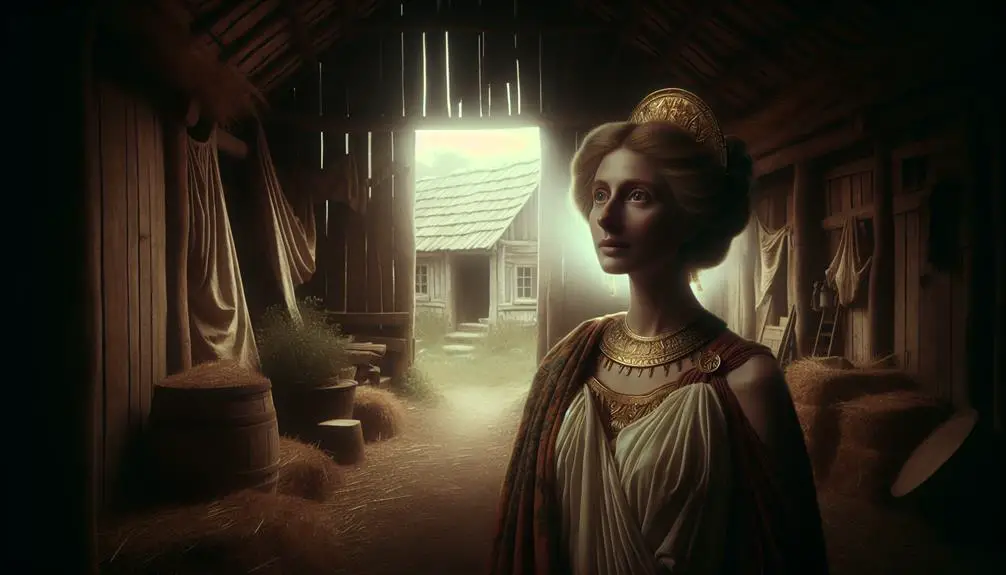
Drusilla in the Bible
As you wade through the pages of the Bible, the figure of Drusilla emerges like a ship glimpsed on the horizon, intriguing yet partially obscured. You might know her as the wife of Felix, mentioned briefly in the Acts of the Apostles, but her story weaves through the threads of history and scripture with a complexity that belies her fleeting biblical appearance.
Her life, from royal beginnings to a controversial marriage, offers a unique lens through which to view the intersections of personal choice and historical circumstance. Unraveling the layers of Drusilla's narrative not only sheds light on her character but also invites you to reflect on the broader social and religious dynamics of her time.
Why, then, should her tale compel your attention further?
Key Takeaways
- Drusilla's marriage to Felix reflects the intertwining of Jewish and Roman cultures during the first century CE.
- Her brief mention in the Acts of the Apostles highlights the socio-political dynamics of her time.
- Understanding Drusilla's background provides insights into the complex roles of women in Roman society.
- Drusilla's story exemplifies the challenges of maintaining Jewish faith within the dominant Roman cultural and political landscape.
Historical Background
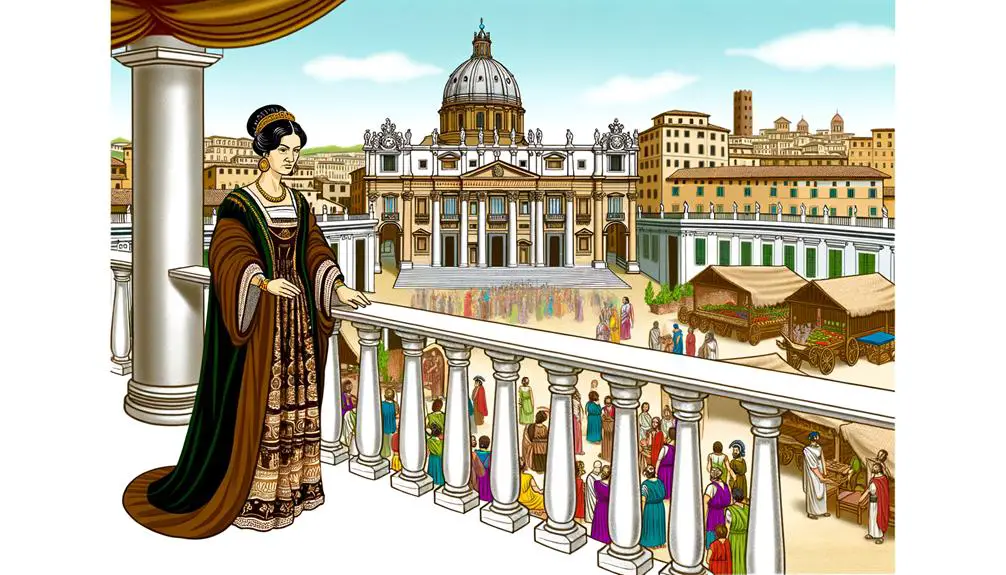
Drusilla's story, set within the broader historical context of the Roman Empire, reveals the complex interplay between political power and personal faith during the first century CE. As you delve into the era, it becomes evident how Roman influence and Jewish customs intricately coexisted, yet often clashed, shaping the lives of individuals like Drusilla.
You'll find that Roman influence was pervasive across the empire, extending its reach into the domains of governance, culture, and religion. This influence wasn't merely superficial; it sought to integrate diverse peoples into a cohesive Roman identity. However, in regions like Judea, where Drusilla's story unfolds, the imposition of Roman rule and culture provoked a spectrum of reactions from acceptance to vehement resistance. Jewish customs, deeply rooted in religious conviction and centuries-old traditions, stood as a bastion against the encroaching Roman way of life.
The intersection of these two powerful forces created a unique socio-political landscape. For Drusilla and others in her position, navigating this landscape meant balancing the expectations of Roman authority with the demands of Jewish faith and practice. Such a balance was precarious, fraught with challenges that tested personal convictions and loyalties.
Understanding this historical backdrop is crucial. It illuminates the pressures and choices faced by Drusilla, highlighting the broader struggle between the preservation of cultural identity and the adaptation to imperial power. This context enriches your appreciation of her story, providing a glimpse into the complex dynamics of Roman influence and Jewish customs that shaped the lives of individuals in the first century CE.
Drusilla's Early Life
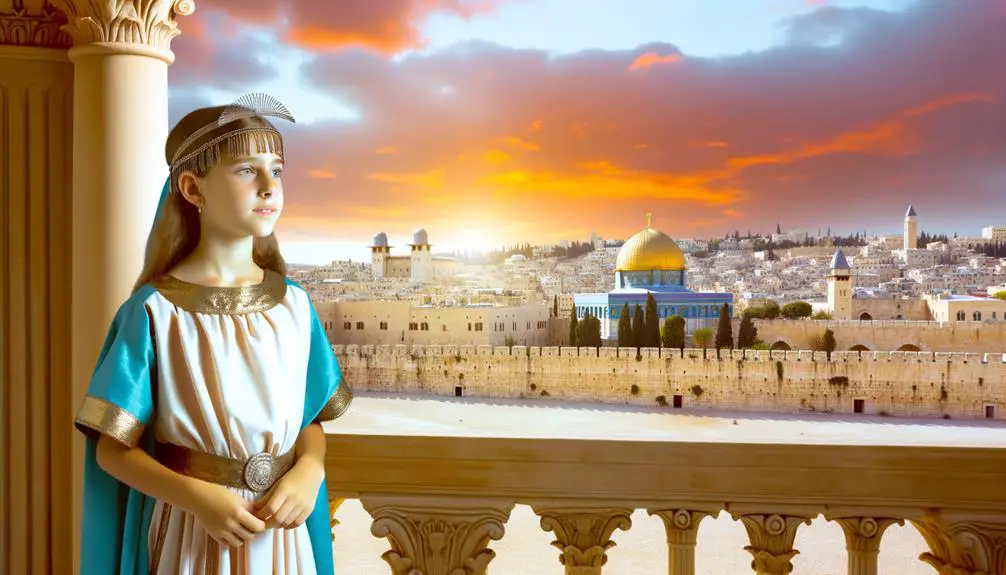
Within the intricate tapestry of Roman and Jewish interplay, the early life of Drusilla emerges as a profound testament to the era's complexities, setting the stage for her eventual navigation through these intertwined worlds. You find in her story a vivid illustration of the tensions and harmonies between her Jewish heritage and the Roman influence that pervaded her upbringing.
You're examining a period where Drusilla's identity was profoundly shaped by her lineage, belonging to the Herodian dynasty, which itself was a symbol of the amalgamation of Jewish tradition and Roman political engagement. Her father, Herod Agrippa I, was a king granted authority by Rome, yet deeply embedded in Jewish society. This duality within her family background provided Drusilla with a unique perspective on the coexisting cultures, but also placed her at the crossroads of political and religious expectations.
Given Drusilla's royal lineage, her education and socialization would have been influenced heavily by Roman customs and luxury, yet her Jewish heritage remained an indelible part of her identity. This blend of influences likely equipped her with an adeptness at navigating the complex societal and political landscapes of her time.
Your understanding of Drusilla's early life wouldn't be complete without acknowledging the impact of these dual influences—how they shaped her character, her worldview, and her actions in later years. The interweaving of Jewish and Roman elements in her upbringing not only highlights the multicultural aspect of her existence but also underscores the broader theme of cultural and political hybridity in the ancient world.
Marriage to Felix
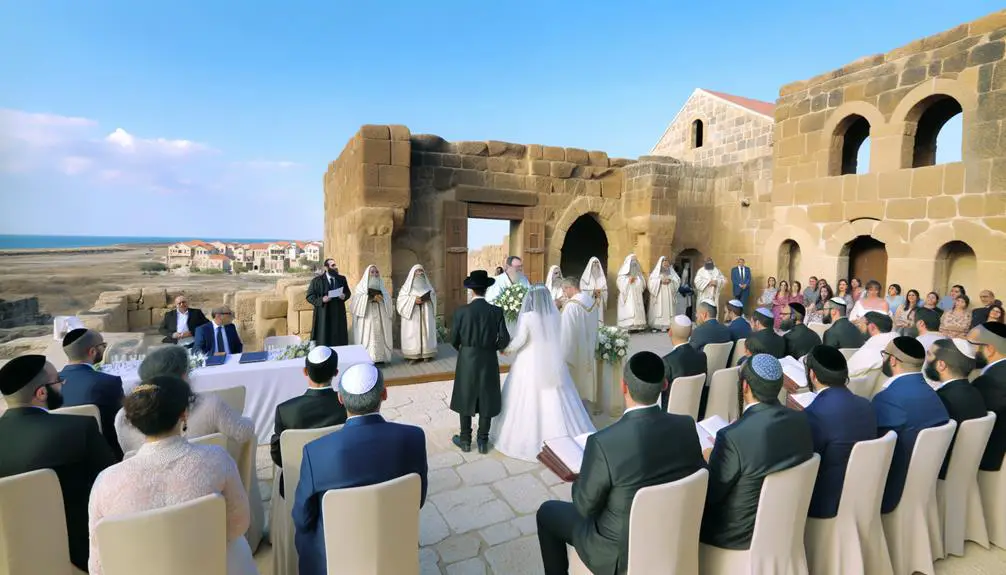
A pivotal chapter in Drusilla's life unfolds with her marriage to Felix, a union emblematic of the complex interplay between personal ambitions and political alliances. This marriage not only reflects the intricacies of Roman politics but also highlights the cultural norms of the era.
Felix, a Roman procurator of Judea, was known for his ambitious nature and keen political acumen. Drusilla's marriage to him was not merely a personal decision but a strategic move that positioned her within the power dynamics of Roman governance. This alliance brought together two influential figures, each leveraging their status for political gain and influence.
The marriage also sheds light on the cultural norms of the time, particularly regarding marital practices and the role of women in Roman society. Drusilla, coming from a royal lineage, found herself navigating the complex landscape of Roman politics, which was dominated by men. Her marriage to Felix underscores the ways in which women of her status could exercise influence, albeit within the confines of their marital relationships.
To understand the impact of this union, consider the following table:
Aspect |
Drusilla's Role |
Impact on Roman Politics |
|---|---|---|
Political Alliance |
Strategic Partnership |
Strengthened Felix's Position |
Cultural Norms |
Navigating Patriarchy |
Highlighted Women's Influence |
Personal Ambitions |
Influence and Status |
Consolidated Power Dynamics |
Strategic Marriage |
Leveraging Lineage |
Altered Political Landscape |
Analyzing Drusilla's marriage to Felix offers valuable insights into the interplay of personal ambitions, political alliances, and cultural norms in Roman society. It illustrates how marriages were often strategic tools used by individuals to navigate and influence the complex web of Roman politics.
Biblical Mentions
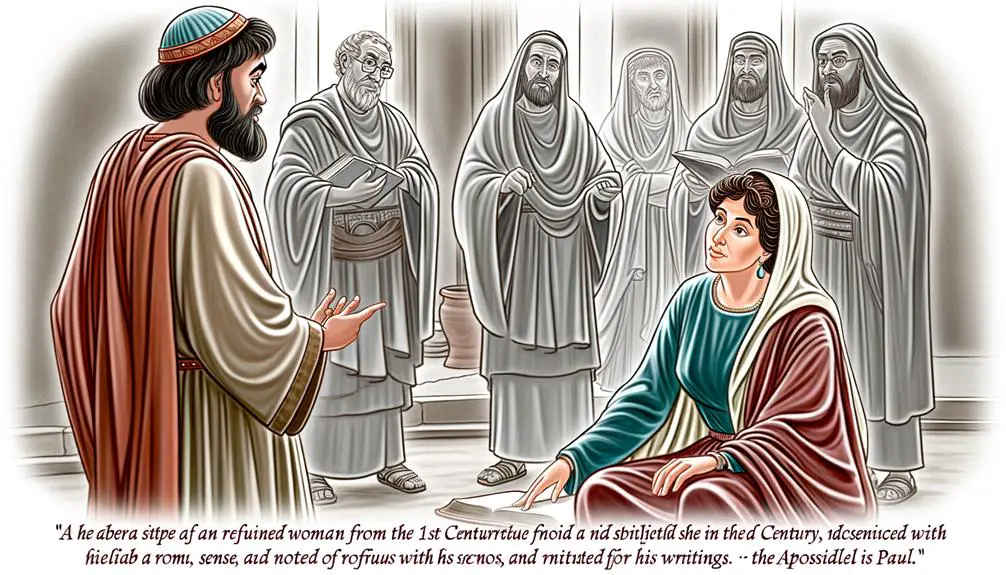
The Bible references Drusilla in the context of her marriage to Felix, offering insights into the socio-political dynamics of the time. This narrative is found in the Acts of the Apostles, where Drusilla is mentioned alongside her husband, Felix, who was the Roman procurator of Judea. This brief mention, though not expansive, opens a window into the complexities of religious and cultural intersections in the first century.
Drusilla's faith, or the lack thereof, isn't explicitly detailed in the biblical texts, but her marriage to Felix, a Roman official, hints at the intricate blend of political ambition and personal beliefs that characterized the era. This union, possibly indicative of Drusilla's pragmatic approach to her circumstances, also underscores the broader theme of cultural and religious amalgamation under Roman rule. Her identity as a Jewess, married to a powerful Roman, symbolizes the cross-cultural entanglements and the fluidity of religious and cultural identities in ancient societies.
The cultural impact of Drusilla's mention in the Bible, though subtle, is significant. It exemplifies how women of the time navigated their socio-political landscapes, often within limited spheres of influence. Drusilla's story, encapsulated in a single biblical passage, reflects the broader narrative of women in antiquity who are mentioned not for their own deeds but as part of the relational dynamics with men in positions of power.
In analyzing Drusilla's mention in the Bible, one must consider the implications of her marriage on her faith and cultural identity, offering a nuanced understanding of the interplay between individual choices and broader socio-political contexts.
Legacy and Interpretations
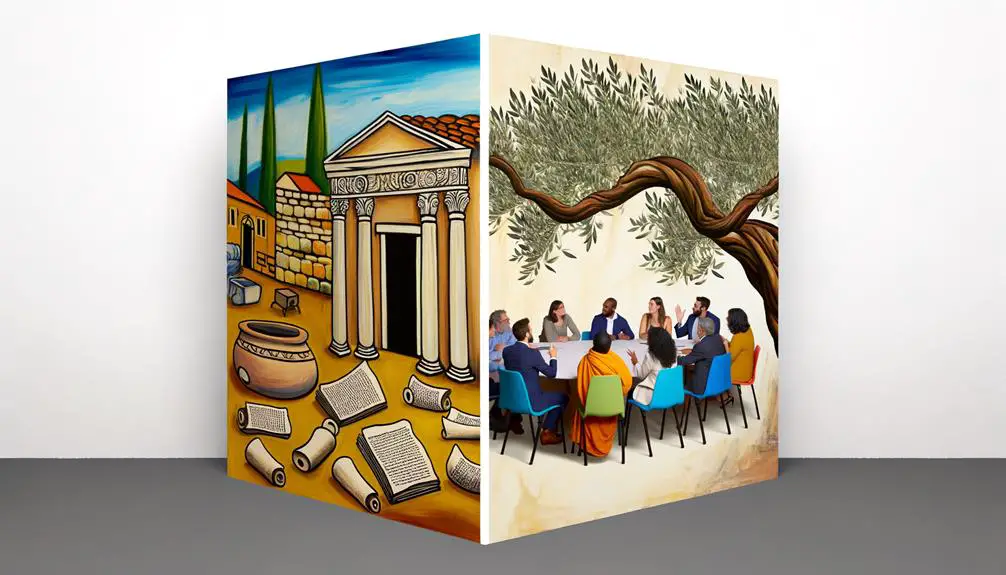
Shifting focus to how Drusilla's biblical portrayal has influenced subsequent interpretations, it's crucial to examine the legacy she's left in both religious and cultural discourses. Drusilla's narrative, though briefly mentioned in the Bible, has become a canvas for a variety of interpretations, reflecting broader themes of power, morality, and femininity.
From a scholarly standpoint, feminist perspectives have been instrumental in reevaluating Drusilla's legacy. You'll find that these analyses often challenge traditional interpretations, highlighting how historical and cultural contexts have shaped the portrayal of female figures in religious texts. Feminist scholars argue that Drusilla's depiction isn't just a tale of moral fallibility but also a reflection of the gender dynamics and constraints of her time. This reimagining offers a more nuanced understanding of her character, presenting her not merely as a figure of intrigue but as a subject of patriarchal structures.
Artistic depictions of Drusilla have further complicated her legacy, spanning from classical paintings to modern digital art. These representations tend to oscillate between vilification and victimization, with some artists emphasizing her alleged seductiveness and others her objectification. You'll notice that through art, Drusilla's story transcends the written word, offering visual narratives that reinterpret her life in ways that words alone can't convey.
Frequently Asked Questions
How Did Contemporary Historians Outside of the Biblical Narrative View Drusilla and Her Influence in Roman Politics?
You're looking at how contemporary historians viewed Drusilla's influence in Roman politics, focusing on Roman perspectives and historical accuracy.
It's intriguing to see that outside biblical accounts, there's a mix of admiration and critique. Historians often highlight her political savvy and connections, yet they also scrutinize her impact on Roman politics through those lenses.
Analyzing these accounts provides a nuanced understanding of her role, blending scholarly insight with objective analysis of her life and actions.
Were There Any Known Descendants of Drusilla Who Played Significant Roles in the Subsequent History of the Roman Empire or Early Christian Church?
You're delving into whether any descendants from a notable lineage played pivotal roles in the Roman Empire or early Christian Church.
Concerning historical accuracy, it's crucial to sift through records meticulously.
While the family's influence is acknowledged, concrete evidence linking them to significant historical figures or events later in history remains scant.
This gap highlights the challenges in tracing family lineages and their impact over time, particularly with ancient figures.
How Have Different Artistic Representations (In Painting, Literature, and Film) Over the Centuries Depicted Drusilla, and What Do These Portrayals Tell Us About Changing Perceptions of Her Character?
Artistic interpretations of Drusilla have painted a thousand words, capturing her through various lenses in painting, literature, and film. These portrayals highlight shifting cultural perceptions, reflecting societal values and biases across eras.
Whether depicted as a villain or a victim, each representation offers a unique glimpse into the artist's world, inviting a deeper understanding of historical and contemporary attitudes. Analyzing these artistic works, you'll find an evolving narrative that mirrors changing societal views.
What Were the Religious Beliefs and Practices of Drusilla, Especially Considering Her Jewish Heritage and Marriage Into Roman Nobility?
You're delving into a figure's spiritual life, particularly her adherence to Jewish customs and how she navigated her integration into Roman nobility.
Drusilla's religious beliefs and practices likely reflected a complex interplay between her Jewish heritage and her marriage's demands within Roman society.
This exploration sheds light on her personal convictions and the broader dynamics of cultural and religious amalgamation in her era, offering insights into the challenges she faced.
Has Modern Archaeological Research Shed Any New Light on the Places Associated With Drusilla's Life, Such as Her Residences or Places She Might Have Influenced During Her Lifetime?
You might be intrigued by how modern excavation techniques and artifact analysis have revolutionized our understanding of historical figures.
When it comes to unearthing places tied to significant personalities, these methods offer fresh insights. Specifically, they could potentially illuminate the residences and influential spots related to Drusilla's life.
Through careful examination of artifacts and advanced excavation strategies, researchers can piece together a more detailed picture of her historical footprint.
Conclusion
In wrapping up, you've navigated through the life of Drusilla, a figure whose story seems more befitting a dramatic soap opera than the austere pages of the Bible. Despite her royal lineage and scandalous love life, her biblical cameo is surprisingly brief.
It's almost as if the scripture whispers, 'Here's a woman who lived in the thick of political and romantic intrigue, but let's just mention her in passing.' Thus, Drusilla leaves us pondering the profound irony that sometimes, the most captivating stories are those least told.



Sign up